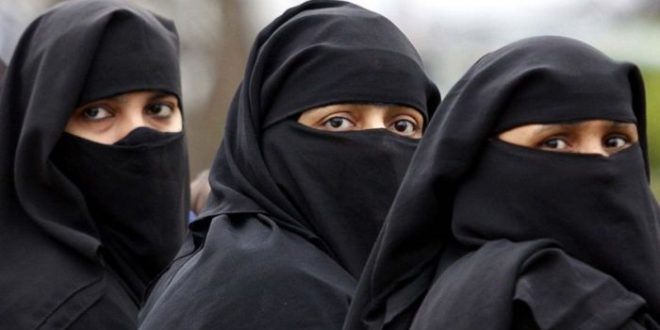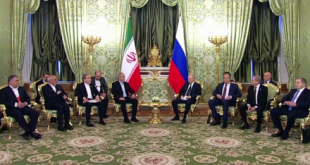Normally in the West and in most European countries the majority of the people have very little attachment to religion or the role of God in their daily lives. Most people in the West have given up attachment to religion at least since World War II. In fact, the basic ethos of the Western society has changed over to material pursuits, science and technology, belief in their own prowess, as opposed to the role of God in their lives. Natural calamities in the West are hardly ever described as “Acts of God.” The faith of the common people in God or prayer is at very low level. The same is true about most countries in Europe. The state after all reflects the public opinion at large and those who operate the organs, and agencies of the state come from the common populace. In Western countries such as the United States of America, England, Germany and others it is easier to separate the state from the church in real practice. Although unlike the US in England there is a close alliance between the Church and State. The monarch is the head of the state and head of Church. Though there is religious freedom, the Church of England has a special status inasmuch as the monarch of England must join in communion with the Church of England. In Germany too the government and the religion are two separate things and must be kept separate. The state has to deal with people irrespective of their faith or religion. All laws are same for every citizen, either minority citizen or majority one. There are no special laws for special interests of minorities/majority.
Status in Muslim countries
In Muslim world perhaps Turkey is the single secularised country which is essentially closer to the Western model. In 1920s Kamal Pasha encouraged the wearing of European dress. All monasteries and religious houses were confiscated by the state, Muslim religious schools were abolished and State non-religious schools were started, Shariat Law was replaced by Swiss Civil Code, the Italian Penal Code and German Commercial Code, polygamy was abolished. A society for defence of woman’s rights was established, purdah was abolished and women were persuaded to enter various professions. Latin script replaced Arabian script and Turkish language was purged of Arabic and Persian words.In nutshell, the ban on religious schools and replacement of the Shariat Law meant it separated state from politics. In contrast is the case of Arab world where the entire Middle East allows little or no freedom to religious other than Islam. But in Southeast Asia in spite of being Muslim majority countries, Malaysia and Indonesia, due to centuries old Indian influence respect diversity and allow freedom to followers of religions other than Islam. For instance, Diwali is a national holiday in Malaysia, an image of Lord Ganesha is imprinted on some of Indonesian notes and their national emblem is Garuda, the vehicle of Lord Vishnu. When a concept as important as secularism is not defined it is subject to misinterpretation and abuse. In political terms, secularism is a movement towards the separation of religion and government. It also can be the social ideology in which religion and supernatural beliefs are not seen as the key to understanding the world and are instead segregated from matters of governance and reasoning and in this sense, secularism can be involved in the promotion of science, reason, and naturalistic thinking. Thus it is evident that the true meaning of the term secularism is more of philosophical and sociological nature rather than political.
Position after terror attack on US
Very recently and especially after the event of the Al Qaeda terrorist attacks in US on 11 September 2001 the picture of the secular and religious tolerant has developed some cracks, following the further terrorist attacks in London, Madrid and elsewhere in Europe. As a result, in their pursuit to make their countries safe from terrorist attacks many centres of power including the state apparatus in the Western countries are falling prey to the Islamophobia attitudes of the small number of zealots. The doctrine of separation of church and state is one of the most essential elements in the fabric of true representative democracies. It is indispensable and fundamentally predicated upon protecting the religious freedom of all groups in society by preventing any one group from imposing itself upon the practices of another. But in contrast, in France and Holland the law of laicite has been enacted which bans large crosses, Jewish skull caps, Sikh turbans as well as Muslim headscarves. On the one hand the laws refuse the right given by international law, the right to freedom of thought, conscience and religion in diverse documents, it forfeits the individual right to claim a belief in freedom of choice and freedom of religion on the other. Article 18 of the Universal Declaration of Human Rights, Article 18 of the International Covenant on Civil and Political Rights, Article 9 of the European Convention, Article 12 of the US Convention and Article 8 of the African Charter all echo the same sentiment. Barring the last all other clauses specifically mention the right “to manifest his religion of belief in teaching, practice, worship and observance”. Even some treaties, for example, the International Covenant makes this right non-derogable, that means that they cannot be suspended during a proclamation of emergency. The International Covenant permits such limitations only if imposed by law and if necessary to protect “public safety, order, health or morals or the fundamental rights and freedoms of others.
In other places
Not only this but the French law asserting equality of treatment under a secular law has extended the law to all other visual forms of Sikh, Jewish or Christian attire. The interpretation of this law also covers to ban students from bearing conspicuous religious symbols in primary and secondary government schools. Accordingly, student may not wear prominent religious symbols such as large crosses yarmulkes, Sikh head coverings, or hijabs-the head coverings of female Muslims. One argument against the law suggests that its interpretation aims primarily to restrict Muslim girls, and that the similar restrictions on students of other faiths is of secondary or even incidental za importance. Thus, it appeared that the French state wishes to protect a group in society by preventing everyone from freely practising their religion remains absurd. It seemed that the French state has inadvertently recognised religion, even if only for the purpose of limiting it. Likewise, in Holland the Dutch cabinet has recently supported a proposal by the Dutch immigration minister to ban Muslim women from bearing the burqa in public places. The justification has been given that the burquas disturb public order, citizens and safety and that integration and tolerance will be promoted by removing this barrier. Once again preventing a group in society from freely practising their religion in the name of religious harmony is not only difficult, it creates an insurmountable paradox.
Author: Dr.Rajkumar Singh Professor and Head P.G.Department of Political Science BNMU,West Campus P.G.Centre, Saharsa-852201. Bihar, India.
 Afghanistan Times
Afghanistan Times




